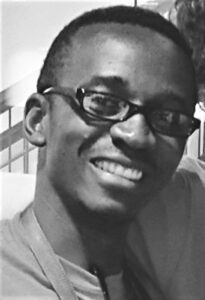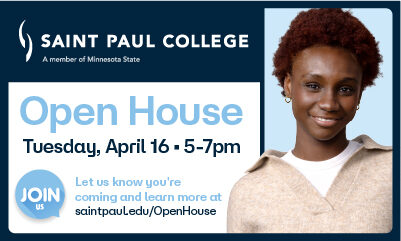
Chikondi Elvis Chabakha
BY ELAINE KLAASSEN
My friend Chikondi Elvis Chabakha is 30 years old. He’s the principal of Cornerstone Christian High School (CCHS) in Salima, Malawi, on the continent of Africa. When the school opened a few years ago there were seven students and one large room (building). But, given the great need for secondary education in the Salima district as well as the values and standards of CCHS, news of the new school traveled quickly. Now enrollment is close to 250, and three more rooms (buildings) have been added.
School starts at 7 a.m. and ends at 4:30 p.m. Monday through Friday. Since the school had no electricity until the very end of 2019, the schedule was designed to take advantage of daylight. Although still wisely using natural daylight, the school has now received a solar investment big enough to charge laptops and provide light in the evening, which allows students who don’t have electricity at home to study in the school at night. Most of the students live within 10 kilometers of the school. They walk, bike or take bicycle cabs (dampa or kabaza). Of those who walk, some set off in darkness in order to cover 10 kilometers (about seven miles) by 7 a.m. Chikondi spends the entire day during the week at the school. Then he rides his bicycle home, where he has electricity. Now that the school has some electrical power, he can do more of his online work at the school instead of everything at home in the evenings.
Students are divided into four groups. Each group spends the day in one building and the teachers rotate as they bring their classes to the students: pure sciences, maths, humanities, arts and languages (English and ChiChewa). All classes are in English except for ChiChewa language classes.
The flyer for Cornerstone Christian High School describes its program as high quality, college-prep and holistic. In the video Chikondi made about CCHS, the kids speaking to the camera are exuberant and full of hope. They speak of what they hope to offer once they have an education. One wants to be a doctor, one a teacher. One girl is determined that all girls should have access to education. One is grateful that a benefactor showed up to pay her tuition.
* * * * * * * *
Malawi is a beautiful country, from what I’ve seen on the internet. It is bordered by Tanzania, Mozambique and Zambia. A long lake, part of the chain of African Great Lakes, lies on its long border with Mozambique.
The country is relatively peaceful. The most civil unrest occurred recently when President Peter Mutharika was re-elected and the results of the election were in dispute. There were riots and violence. The country also suffered upheaval in March of 2019 because of heavy flooding.
It’s a poor country. With a population of 15 to 16 million, and rapidly growing, half the people live below the poverty line. There is a shortage of schools, teachers and materials but no shortage of a desire to learn.
The government provides primary education, so there’s no charge to go to grade school. Preschool, though, is not provided by the government, but since it is highly valued, many volunteers offer whatever they can, without facilities, supplies or teacher training. High school and college are different. There are some public facilities, and some schools that charge tuition, but altogether not enough. Less than 35% of Malawi’s young people go to high school. Around 1% go to college.
Chikondi was not only fortunate enough to obtain a college degree but a master’s degree as well, from Eastern University in Pennsylvania. His college major is in biblical studies and his minor in education. His master’s degree is in organizational leadership. While he was finishing his course work in the U.S., a team from the Malawian organization Cornerstone Ministries Malawi was starting to establish Cornerstone Christian High School. When Chikondi finished his degree, he joined the team and became principal of the school.
* * * * * * * * * *
I met Chikondi at ARK for Peace, an innovative global youth organization (with a few older participants) begun in Minneapolis by Presbyterian church leader Judy Maghakian.
The goal of ARK is to create a global “family” where everyone loves each other and cares deeply about each other’s lives and doesn’t see each other primarily as “Guatemalan” or “Palestinian” but simply as a friend and brother/sister. As the global family coalesces, we all now read the news differently and are tuned in to the situations and challenges of our global family members’ countries.
Chikondi started in ARK as a teenager and I only started in the summer of 2015 when the group (about 40 people) met in New York City near the United Nations. ARK has been meeting for 10-day gatherings in different worldwide locations since the early 2000s. Although members now come from Guatemala, Palestine, Lithuania, Malawi, Iran and Pakistan plus Minneapolis, meetings have never yet been held in Lithuania, Malawi, Iran or Pakistan. In 2019 we had intended to meet in Armenia, but the world political situation was not conducive and we met at Macalester College in St. Paul instead.
Chikondi and I didn’t get to know each other much in New York. Our friendship really started at Macalester. I was going on about the environment and conservation (something I talk about all the time) and how I wouldn’t be opposed to the rationing of electricity since there is no way the world will ever be able to sustainably meet the “growing demand” for electricity, etc., etc. Chikondi couldn’t stop laughing.
“You are talking to the wrong person,” he said. “I come from a place where less than 20% of my country is even electrified.” I of course didn’t know that, but I was impressed that his country is part of the climate solution—Malawi is clearly doing its part in not wasting electricity. I thought they should get a prize. He joked, “I would buy a car [if I got a prize for being poor].” Very funny.
One evening, at Macalester, Chikondi spoke to the group about the need for education in Malawi and how CCHS had been established. Everything he said grabbed my attention.
In November and December of 2019, Chikondi was here in the U.S. to raise funds for his school. He has many friends, some originally from Malawi and many from his student days in Pennsylvania, who support his work to the extent that they can. Some church groups have done small things like send pencils and school supplies. Others have created large monetary grants. So, he was connecting with supporters and hoping to gain more.
I had offered Chiko a place to stay, but I didn’t know when he was coming. Since he communicates using messages on Facebook and he doesn’t always have access to it, it’s not a connection to count on. So, in November I heard in a roundabout way from some Minneapolis ARK people that Chikondi was going to be here in a few days and he was staying at my house. Yikes, gotta wash some floors and get some groceries!!!
Anyway, we had a great time and got together with other ARK people at Parkway Pizza. I learned a lot more about his work and his life, which, from what I could feel and observe, is based in faith, hope and love.
If anyone has an interest in supporting the school, here is the contact information:
Twitter: https://twitter.com/cornerstonemw
www.urbanpromiseinternational.org/cornerstone:
cornerstoneministriesmalawi.org
























